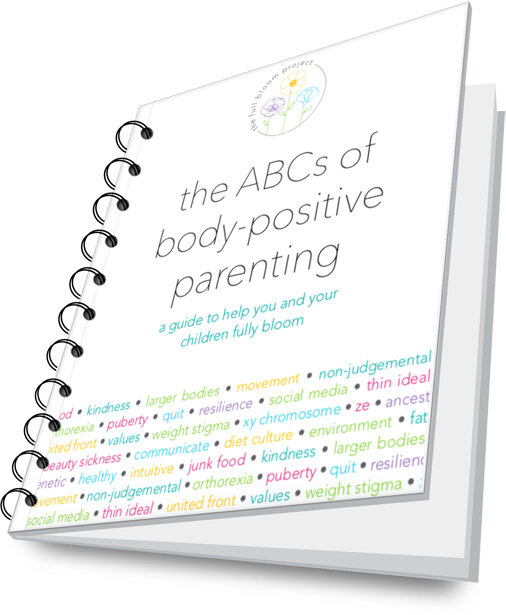#41: What happens when parents talk about weight?
with Ellen Pudney, MS, RDN
In this episode we discuss…
ellen’s background studying weight stigma
examples of different types of parental weight talk
direct talk about a child’s weight vs. a parent’s comments about their own body vs. about another person’s body
why parents may not be aware they’re engaging in weight talk
research showing that about a third to a quarter of parents engage in weight talk in front of kids
the differences between experienced weight stigma and weight bias internalization
the finding that higher levels of internalized weight stigma in parents was significantly associated with engaging in more weight talk
intergenerational body shame
the impact of parental weight talk on kids
possible explanations for why fathers were found to engage in more child-centered weight conversations than mothers
what parents can do to build awareness of their own weight stigma and challenge how it impacts their kids
ellen’s answer to the million dollar question
Researcher and HAES® advocate Ellen Pudney joins us to discuss her recent study on the connections between weight stigma and parental weight talk. We learn about her findings and how parents can use the research to consider how and what they are communicating to their children about weight.
Ellen Pudney, MS, RDn is a registered dietitian nutritionist and doctoral student in Human Development and Family Sciences at the University of Connecticut. She received her master’s degree in Nutrition and Dietetics from Northern Illinois University and her bachelor’s degree in Nutritional Sciences from the University of Connecticut. Prior to pursuing her PhD, she was a Family and Consumer Sciences Agent for Virginia Cooperative Extension where she worked with schools and other community organizations to develop and implement wellness policies. Ellen has both practical and research experience working with families of low socioeconomic status, particularly through food pantries and Head Start centers. She is currently a research assistant at the University of Connecticut’s Rudd Center for Food Policy and Obesity where she works with her academic advisor, Dr. Rebecca Puhl, on issues related to weight stigma. Ellen is a Health at Every Size® advocate and hopes that her research will raise awareness about the physical and mental health consequences of a weight-centric approach to health.
Connect with Ellen on her website.
Resources mentioned:


